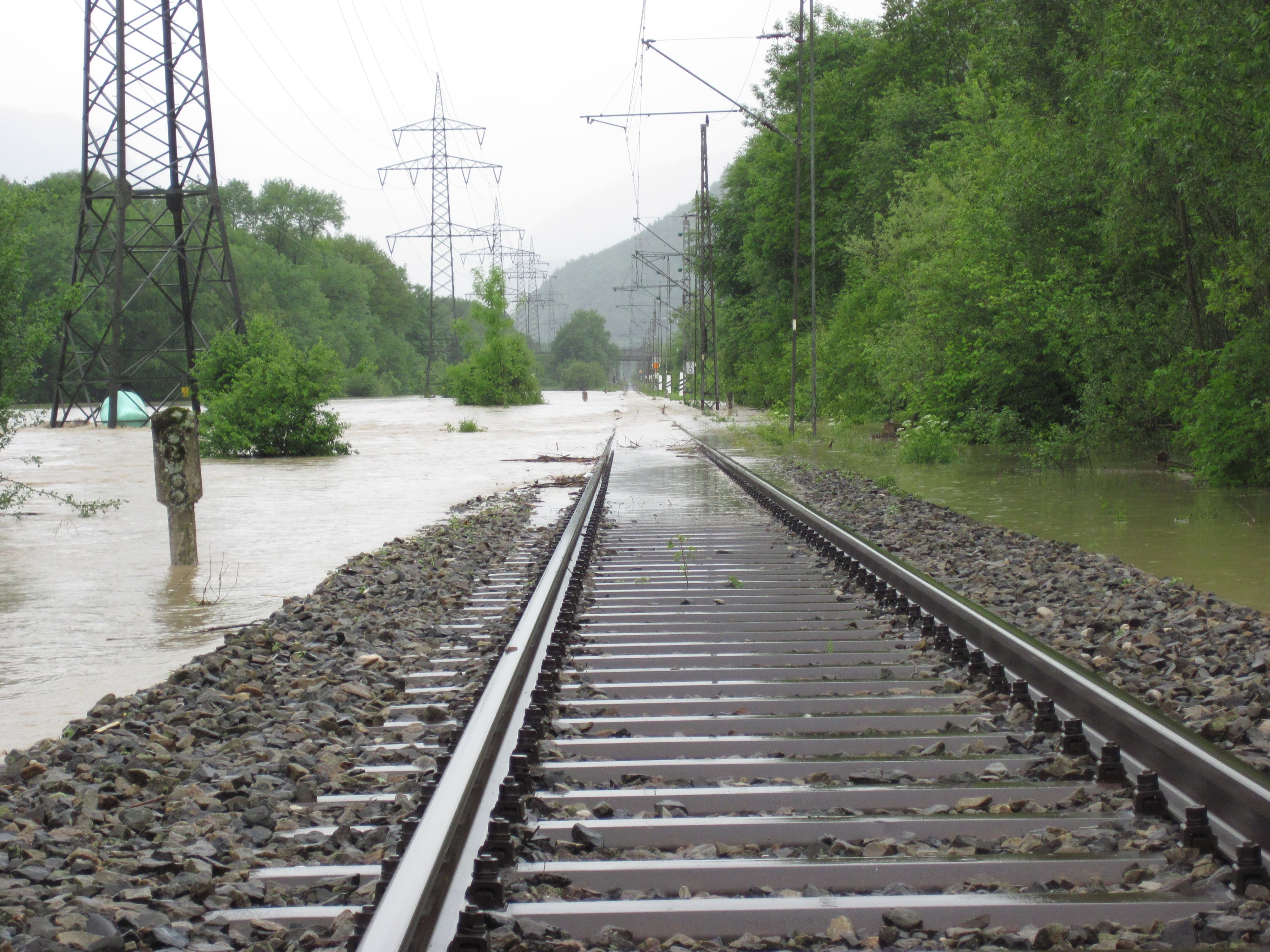
Spring isn’t all fresh grass, blooming flowers and happy days of sunshine for the railways. The warming weather heralds flood season in many parts of the United States, and the damage that storms, heavy rains and high winds can cause may bring sections of our railway lines to a complete standstill as workers struggle to defend tracks and infrastructure from the ravages of weather
Impact of Flooding on Railway Infrastructure
The havoc that floodwater can wreak on infrastructure can take days, weeks and even months to repair. This is because the damage takes place at a foundational level.
- For example, a steady rush of floodwater can displace the bed of stones that support railways sleepers (known as ballast). This makes it unsafe for trains until workers have replace and readjusted the ballast.
- Floods may disrupt power supplies. If the track has a live conductor rail, then flooding can result in a short circuit as well.
- Even if trains can run in spite of flooding, they must slow down where the water level has risen above the track. This can cause accumulating delays and breakdowns of daily arrival/departure timetables.
- When rainfall is incessant, the drainage system may fail to clear the water, making flooding all the more likely.
- High winds and storms can litter the tracks with trees, branches, rocks and other debris that pose as obstructions and have to be removed before rail service can recommence.
- Even when the water recedes from a recent event of flooding, the problem of landslides may arise. This can create further disruptions. The presence of long-standing water loosens soil particles, weakening slopes and causing the soil to slide.
Preparation
Engineers and contractors are always on high alert during spring flooding season. They are ready to work day and night to control any damage caused by weather.
But the railways are also working year-round to defend their tracks and infrastructure.
- They monitor weather continuously. Equipment and emergency workers are deployed to high-risk areas as soon as a flood warning is issued.
- Flood defense systems, such as inflated barriers, seal off vulnerable infrastructure from as much water damage as possible.
- Workers clear surrounding areas of any debris that can blow onto the tracks or the drainage systems. Residences close to the railway’s tracks are encouraged to put away any objects in yards that can be carried off by the wind.
- More pumping stations built in high-risk zones every year to carry away excess water before it can become a problem.
- Whenever lines are renewed in flood-prone areas, an analysis is done to see if raising the tracks and signaling equipment will help to protect them against the next flooding event.
- Workers make sure the process of re-inspecting tracks after a flood takes place as efficiently and quickly as possible. This disrupts train schedules for the shortest possible time.
- The Railways take an active interest in developments surrounding sections of tracks in high-risk zones. They make sure they have adequate drainage systems and will not contribute to the possibility of flooding.
Taking precautions is the best way to defend a transport system on which our economy depends so heavily for moving passengers and goods.
At Custom Truck One Source, we’re honored to work side-by-side with railway officials, and provide hi-rail trucks and equipment needed to keep our railways running safely during Spring flooding weather.

